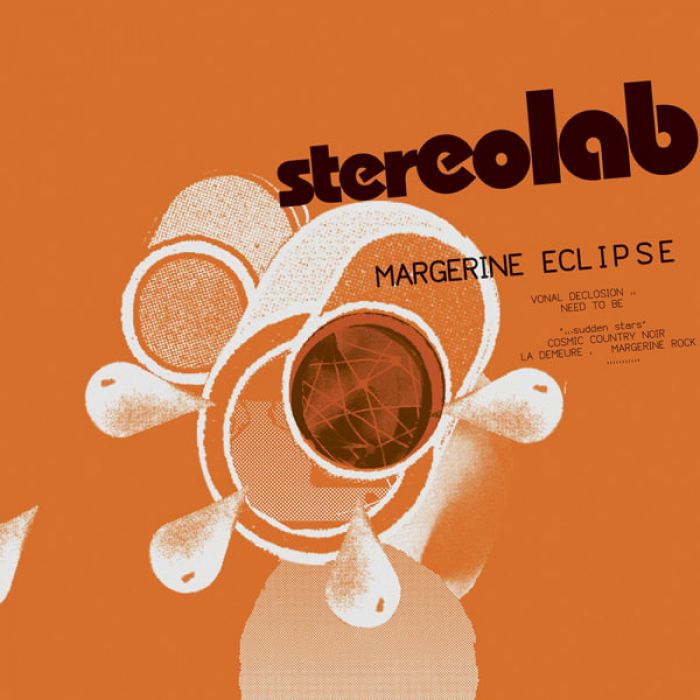Margerine Eclipse by Stereolab (Review)

I know, I know… at this point, it’s pretty much useless to try and critique a new Stereolab album, seeing as how they’ve been fully intent on making the exact same album for the past 10 years or so. And Margerine Eclipse features all of the sounds you’ve come to expect from the ‘Lab — kitschy melodies, retro-futuristic analog synths, funky guitars, layers of bubbling percussion and electronic programming, and the graceful coos of Laetitia Sadier (sadly, no longer backed by Mary Hansen’s).
Unsurprisingly, it still sounds like the perfect soundtrack to some obscure, psychedelic 1960s French sci-fi movie, albeit one about Marxism and the downfall of the bourgeoisie.
That being said, while Margerine Eclipse is more fetching than their previous full-length, 2001’s Sound-Dust, it feels rather unfocused and meandering, as if the band, after making the same lovely sounds for the past decade or so, suddenly hit a brick wall as far as what to do with them. There are some soon-to-be classic Stereolab moments — “Vonal Déclosion” is one heckuva rollicking opener, and “Cosmic Country Noir” is one of the most melodically engaging songs I’ve ever heard from the band — but it’s these few highlights, rather than the consistency one normally finds in a Stereolab album, that ultimately carry the disc.
But as I said before, criticizing a new Stereolab album is basically pointless. The band shows no signs of changing their sound — though one can’t help but feel that the tragic death of vocalist/keyboardist Hansen did shake things up a bit, and might even be responsible for some of the album’s lack of confidence. And Stereolab fans (myself included) show no signs of losing interest, no matter how many times the formula gets repeated.
However, if you’re a Stereolab newbie, Margerine Eclipse might not be the best place to start. Rather, I’d recommend starting with Dots and Loops, which often finds the band at the height of their kitschy/analog/Marxist powers.